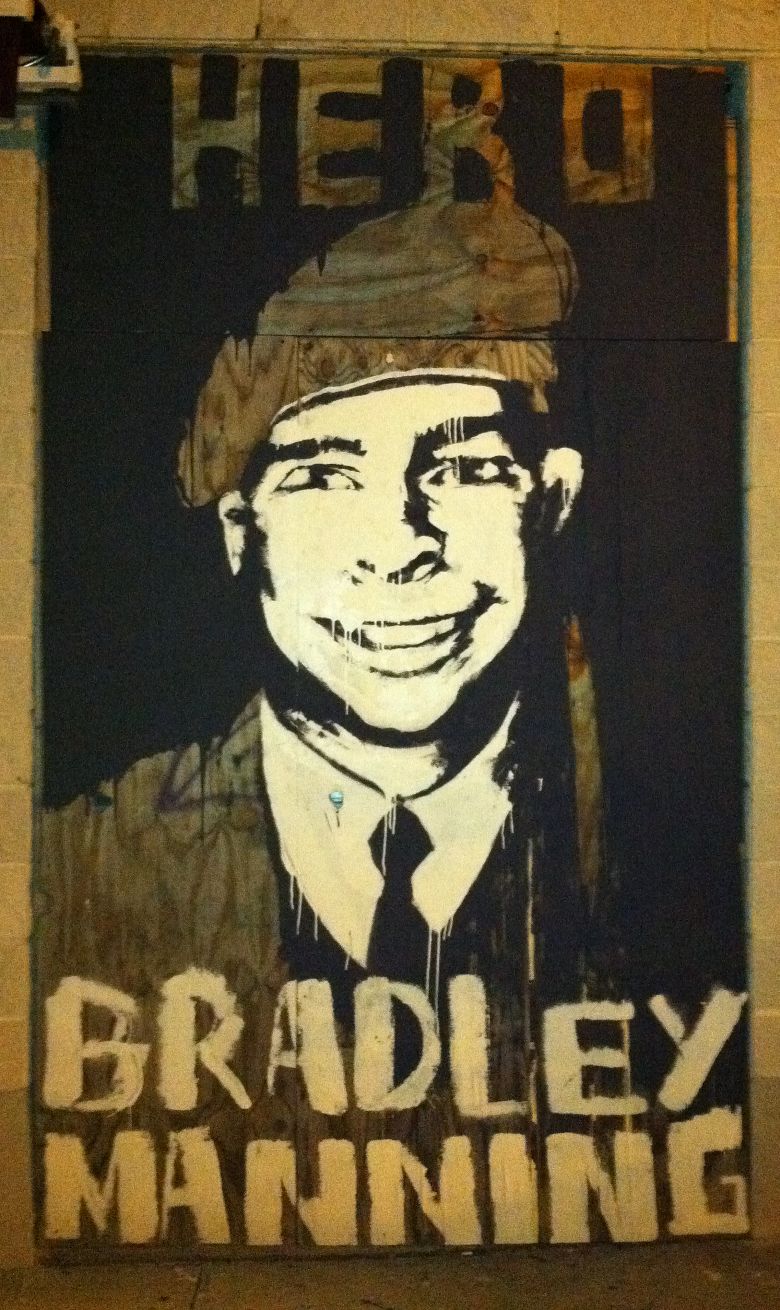Is Bradley Manning a Hero?
PFC Bradley Manning, who is accused of espionage, aiding the enemy, and many, many other offenses, all of which stem from his decision to copy and share tens of thousands of files with Wikileaks, including the now infamous Collateral Murder video (which showed a United States Apache helicopter firing on civilians in New Baghdad in 2007), has been named The Guardian's "Person of the Year" for 2012, with 70% of the vote by readers of The Guardian.
WikiLeaks releases attributed to Bradley Manning have provided unparalleled access to important facts.
Revealing covert crimes in Iraq and Afghanistan and corporations' pervasive influence in governance, this window into the realities of modern international relations has changed the world for the better. While some of these documents may demonstrate how much work lies ahead in terms of securing international peace and justice, they also highlight the potential of the internet as a forum for citizens to participate more directly in civic discussion and creative government accountability projects.
 Last week, PFC Bradley Manning offered to accept responsibility for releasing classified documents as an act of conscience – not as charged by the US military (espionage, aiding the enemy, etc.).
Last week, PFC Bradley Manning offered to accept responsibility for releasing classified documents as an act of conscience – not as charged by the US military (espionage, aiding the enemy, etc.).I think he is a good choice, not that there aren't dozens of good choices each year. It takes an incredible amount of courage to risk one's life in the interests of disclosing military and government corruption.
In an effort to break him, he was subjected to nearly a year in solitary confinement against the recommendations of mental health professionals. The argument that he was a suicide risk was refuted in the testimony of three psychiatrists at Quantico, while his personal counselor (Gunnery Sergeant (GYSGT) Blenis) recommended that he be kept on suicide watch (POI), which requires isolation and removal of personal items (at the same time his counselor told Manning that his behavior was exemplary).
While the government has argued this week that PFC Manning’s harsh holding conditions met brig regulations, the defense continued arguing the unnecessarily severe nature of PFC Manning’s Quantico treatment with testimony from the garrison commander at PFC Manning’s current prison in Ft. Leavenworth, KS, Lt. Col. Dawn Hilton. At Ft. Leavenworth, Lt. Col. Hilton testified, Bradley Manning was found through psychological interviews and observation to be a medium security prisoner, meaning he was allowed much greater freedom of movement, interaction with other prisoners, as well as an array of personal items. She continued that at Ft. Leavenworth, Suicide Watch was the status most comparable to POI, and her goal was always to downgrade prisoners from this status as soon as possible, by working with psychological staff. She testified that if a detainee’s condition was so severe that prison staff was unable to successfully downgrade their status within a few days, she would next work to have them transferred to a psychiatric ward, rather than remain in prison. Additionally, she testified that all prisoners were allowed at least 1 hour of outside recreation per day, in accordance with American Corrections Association (ACA) standards; for the first 6 months of PFC Manning’s imprisonment at Quantico, he was allowed a mere 20 minutes of sunlight per day. Unlike the Quantico military brig, the Ft. Leavenworth garrison is accredited as meeting 100 percent of ACA standards.If you are interested in what was actually released in the Wikileaks documents, there is a document that outlines that major items that the government claims are national security issues, but seem actually to be crimes that they do not want exposed. For example:
- There is an official policy to ignore torture in Iraq.
- U.S. officials were told to cover up evidence of child abuse by contractors in Afghanistan.
- Guantanamo prison has held mostly innocent people and low-level operatives.
- There is an official tally of civilian deaths in Iraq and Afghanistan.
- U.S. Military officials withheld information about the indiscriminate killing of Reuters journalists and innocent Iraqi civilians.
- The State Department backed corporate opposition to a Haitian minimum wage law.
- The U.S. Government had long been faking its public support for Tunisian President Ben Ali.
- Known Egyptian torturers received training from the FBI in Quantico, Virginia.
- The Obama Administration allowed Yemen’s President to cover up a secret U.S. drone bombing campaign.

No comments:
Post a Comment